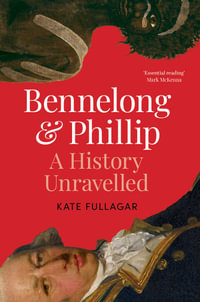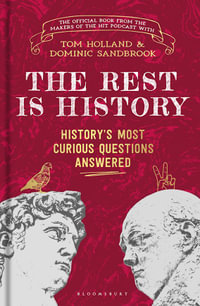How a traditionalist became part of Lincoln's volatile team of rivals
Edward Bates, a founding father of Missouri and leader of the Missouri Whig Party, served as Abraham Lincoln's attorney general during the American Civil War. The first full biography of Bates in nearly sixty years, Lincoln's Conservative Advisor reveals a striking portrait of this complex figure in Lincoln's cabinet.
Author Mark A. Neels begins with Bates's youth in Virginia and follows him through his political and judicial career, his candidacy as a Republican presidential nominee in 1860, and his appointment to Abraham Lincoln's cabinet as attorney general. Bates became an essential advisor to the president on key legal, military, and political matters from emancipation to civil liberties and equal rights, and his official opinion on Habeas Corpus would have a permanent effect on presidential authority and separation of powers. When Lincoln drafted the Emancipation Proclamation, Bates found himself at odds with the president and the radical anti-slavery members of the cabinet.?But more than simply highlighting the conflict within Lincoln's administration, Bates's example lays bare the strong philosophical divisions within the Republican Party during the Civil War era. These divisions were present at the party's inception, crystallized during the war, and ultimately sparked a political realignment during Reconstruction. Bates was at the center of this divide for most of its existence, and in some cases assisted in its promulgation.
Bates, a fierce opponent of radical Republicanism, embodies the conflict among Republicans over issues of slavery and citizenship. In both judicial and elective office, he was compelled by a sense of duty to defy the populism of President Andrew Jackson and Senator Thomas Hart Benton, and, later, the proslavery forces that threatened to tear the nation apart. Though he had owned slaves, Bates represented at least one enslaved woman's suit for freedom, released from bondage the people he had enslaved, and aided Lincoln in his efforts to end slavery nationwide. Bates's opinion on citizenship as attorney general helped pave the way for equal rights. His opinions were not always popular with either his colleagues or the greater populace, but Bates remained true to his conservative principles--a set of values shared by a large swath of Lincoln's Republican Party--which positioned him as a leading opponent of radical Republicanism during the Reconstruction Era.
Industry Reviews
"A solidly researched and eminently readable biography that both chronicles Edward Bates's life and offers compelling insights about American political life during the American Civil War."--Paul Kahan, author of Amiable Scoundrel: Simon Cameron, Lincoln's Scandalous Secretary of War
"Lincoln's cabinet received a fine group portrait in Doris Kearns Goodwin's Team of Rivals, which has been ably supplemented by recent biographies of William Henry Seward, Edwin M. Stanton, Salmon P. Chase, and Simon Cameron, but not Attorney General Edwards Bates--until now. Joining those fine works is Mark A. Neels'sca life of that eminent Missouri jurist, whose advice Lincoln valued and whose opinions--particularly one establishing citizenship rights for African Americans--proved highly influential. This is a welcome addition to the literature of Lincoln and the Civil War."--Michael Burlingame, author of Abraham Lincoln: A Life
"Edward Bates long has needed a modern biography, and Mark Neels has provided it. Lincoln's attorney general has been a peripheral figure in many examinations of Civil War politics and the cabinet. Neels makes a strong case for Bates's importance as a leader of conservatism and role in the events of his time, and presents a life in full. Anyone who reads this will come away with a fine grasp of Bates's life and times."--Michael S. Green, author of Lincoln and Native Americans
"This is a long-needed biography of the attorney general of the United States under President Abraham Lincoln. Neels takes us inside the cabinet to show the divisions within the Republican Party and sheds light on the thinking of a leading conservative within the party that led the country through the crisis of the Civil War and Reconstruction. In addition to filling the biographical void, the book also illustrates how conflicts within the party were often generational as well as ideological."--A. James Fuller, author of Oliver P. Morton and the Politics of the Civil War and Reconstruction
























